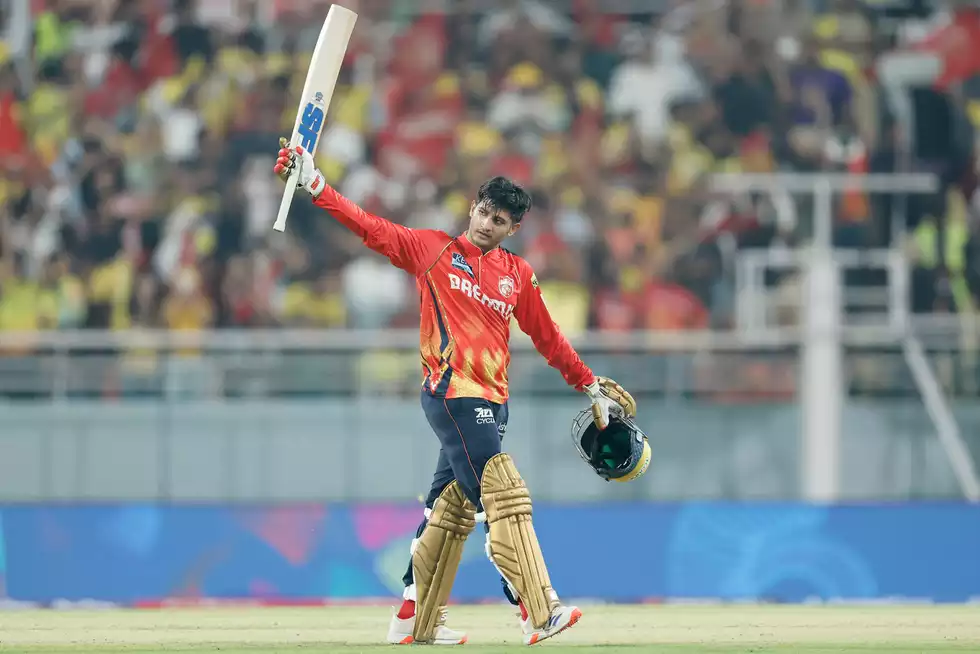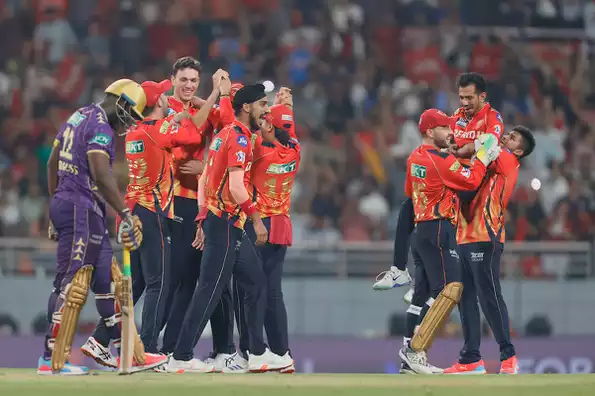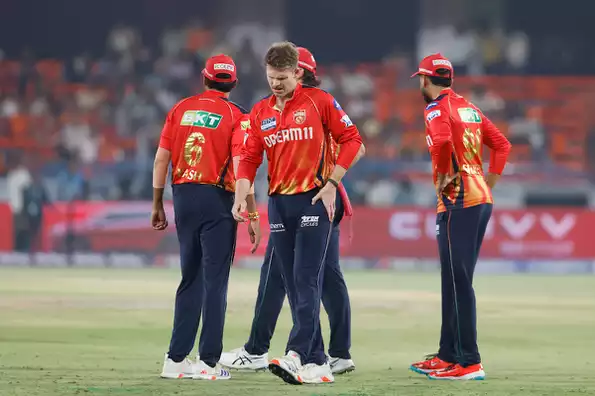Priyansh Arya set the tone for the Punjab Kings vs Chennai Super Kings game in emphatic fashion, launching the very first ball for an upper-cut six – only the fourth time an IPL match has begun with a maximum. He went on to hammer nine sixes and seven fours in a breathtaking 103 off just 42 balls. In doing so, he became only the eighth uncapped player in IPL history to register a century. While the numbers reflect raw explosiveness and brutal power, Arya’s innings was far more nuanced than the stats alone suggest.
Arya’s rise to prominence through his explosive performances in the Delhi Premier League is well-documented. He was the tournament’s leading run-scorer in 2024, amassing over 600 runs in 10 matches, including two centuries and four half-centuries. One of his most talked-about innings came when he smashed six sixes in an over off left-arm spinner Manan Bhardwaj during a whirlwind 50-ball 120. This knock was part of a record-breaking 286-run partnership with Ayush Badoni (165 off 55), propelling the South Delhi Superstarz to a massive 308/5. Arya’s standout performances caught the attention of IPL scouts, leading to his acquisition by the Punjab Kings for INR 3.8 crore – a substantial investment in the flamboyant 24-year-old batter.
Arya has also been Delhi’s leading run-scorer in two consecutive editions of the Syed Mushtaq Ali Trophy, tallying a century and three fifties across 16 innings, with his 547 runs coming at a strike rate of 172.55, and only three single-digit scores. Backed by this form, Kings showed their faith in the youngster by naming him an opener in their first game, and he delivered with a quick-fire 23-ball 47 at a strike rate of 204.35 against Gujarat Titans. Although he scored only 8 and 0 in his next two outings, the Kings stuck with him, opting to back his potential rather than seek other options.
PBKS’ faith in Arya paid rich dividends in their clash against CSK. While the rest of the top and middle-order crumbled, Arya stood tall, launching a clinical, precision-driven assault on the CSK bowlers. By the end of the eighth over, after PBKS had chosen to bat, they had already lost half their side – Prabhsimran Singh, Shreyas Iyer, Marcus Stoinis, Nehal Wadhera, and Glenn Maxwell – all dismissed for single-digit scores. Yet, remarkably, the team had surged to 83, carried entirely by Arya’s onslaught.
The pitch for the PBKS-CSK clash wasn’t a central strip, creating an imbalance with one square boundary noticeably shorter than the other. In such conditions, teams typically look to exploit the shorter side for maximum returns. PBKS, too, adopted that approach but it backfired, costing them most of their top order. Prabhsimran chopped on while trying to pierce the off side, Iyer was bowled attempting a flick, Stoinis got a leading edge trying to work it to leg, and Wadhera top-edged a slog across the line.
In contrast, Arya demonstrated a well-rounded and adaptive approach, with calculated shot selection on both sides of the wicket. He consistently aligned his boundary-hitting options with the ball’s line and angle, leveraging the ground dimensions effectively without compromising control. During the powerplay, a total of eight sixes and seven fours were recorded. Six of those maximums came off Arya’s bat, with four cleared over the shorter boundary and two over the longer one. He also struck six fours in this phase, again distributing them intelligently: four to the shorter side and two to the longer.
Arya had raced to a 19-ball fifty inside the powerplay but got only seven off his next nine deliveries as he he focused on stabilising the PBKS innings in partnership with Shashank Singh. This phase saw a lull in boundaries between overs 7 and 10, but the duo made up for it swiftly with a blistering 71-run stand in only 34 balls. And once again, Arya showcased smartness in his shot selection. Three sixes and a four were dispatched to the shorter boundary, while four sixes and another four went to the longer side. Arya’s versatility stood out as he converted his maiden IPL fifty into a thunderous 39-ball century – the joint fourth-fastest in the tournament’s history and the fastest by an uncapped player.



